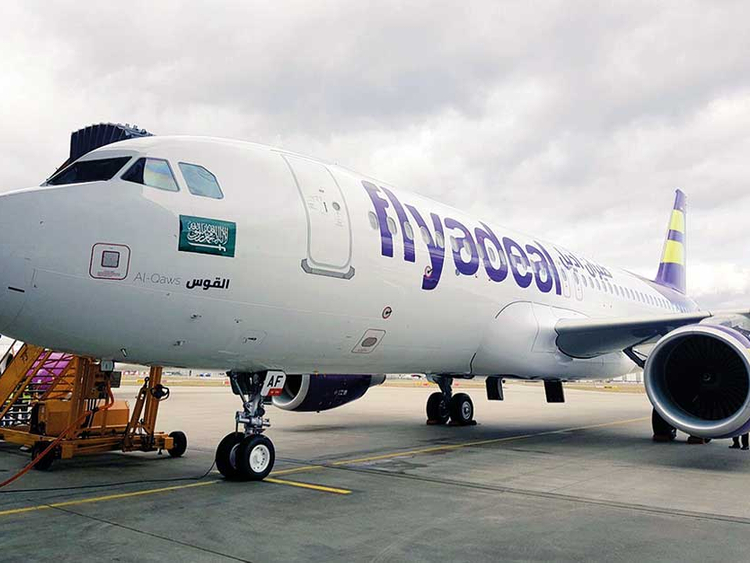News, Ideas, Tips, Great Fixes ......
Boeing Loses $5.9 Billion 737 MAX Order To Airbus As Saudi Airline Loses Patience
From Zero Hedge

By Tyler Durden
The Saudi budget airline Flyadeal has lost patience with the ongoing grounding of Boeing's flagship 737 MAX airplane, and on Sunday announced it would not proceed with a $5.9 billion order for 30 Boeing 737 MAX aircraft, instead opting for a fleet of Airbus A320 jets, with options for a further 20 of the jets.
According to Reuters, Flyadeal has been reconsidering a commitment to order the Boeing jets after two MAX aircraft crashed in Ethiopia in March and Indonesia last October, and which killed a total of 346 people, triggering the global grounding of the aircraft and wiped billions off Boeing’s market value. On Sunday, it finally pulled the plug when it announced it would take delivery of 30 A320 neos ordered by its parent, state-owned Saudi Arabian Airlines, at the Paris Air Show in June.
“This order will result in flyadeal operating an all-Airbus A320 fleet in the future,” it said.
Flyadeal, which has operated leased A320 jets since launching in September 2017, will take delivery of the new Airbus aircraft from 2021.
“We understand that flyadeal will not finalize its commitment to the 737 MAX at this time given the airline’s schedule requirements,” a Boeing spokesperson said in their most diplomatic tone as the last thing Boeing wants is the rest of the world following in Flyadeal's footsteps.
Boeing said in a statement that it wished “the Flyadeal team well as it builds out its operations”, adding that its workforce “continues to focus on safely returning the 737 Max to service and resuming deliveries of Max aeroplanes”.
The latest setback for Boeing comes after the Saudi airline signed a $5.9 billion deal for the Boeing aircraft in December but found it impossible to keep waiting for Boeing's regulatory hurdles to clear. Flyadeal said the order would “result in Flyadeal operating an all-Airbus A320 fleet in the future”.
This is hardly the last order cancellation for Boeing which has hundreds of billions at stake in its order backlog as the 737 MAX remains grounded worldwide and regulators must approve the fix and new pilot training before the jets can fly again. Oman Air warned in June it would hold talks with Airbus if Boeing did not provide support and recovery for the MAX. Meanwhile, Emirati carrier flydubai said in April it could order A320neos as replacements for the MAX jets.
Meanwhile, telegraphing that the MAX will remain grounded for even longer than anticipated, on Friday Europe’s aviation regulator outlined five major requirements it wants Boeing to address before it will allow the planemaker’s 737 Max to return to service, according to Bloomberg. One of them, about the jet’s autopilot function, hasn’t surfaced previously as an area of concern.
The European Union Aviation Safety Agency has sent its list to both the U.S. Federal Aviation Administration and Boeing; The FAA hasn’t publicly discussed details about what changes it’s demanding on the Max, so it’s difficult to know whether the EASA demands differ dramatically -- and whether they would significantly boost the cost and time to get the Max back in the air.
EASA’s checklist includes a number of issues that have been disclosed: the potential difficulty pilots have in turning the jet’s manual trim wheel, the unreliability of the Max’s angle of attack sensors, inadequate training procedures, and a software issue flagged just last week by the FAA pertaining to a lagging microprocessor. But the agency also listed a previously unreported concern: the autopilot failing to disengage in certain emergencies.
“Any of these could significantly affect the return to service, but we don’t know if they are actually going to become requirements or are they just items for discussion,’’ said John Cox, a former 737 pilot who is president of the aviation consulting company Safety Operating Systems.
When you subscribe to the blog, we will send you an e-mail when there are new updates on the site so you wouldn't miss them.